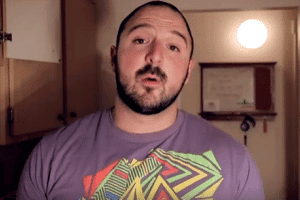
AstraZeneca Documents Unsealed. A plaintiff in a Seroquel lawsuit is trying to convince a judge to unseal more AstraZeneca documents before a Food & Drug Administration (FDA) advisory panel meets next month to consider expanding the use of an extended-release version of the drug. The plaintiff blames Seroquel for his diabetes, and according to the […]

AstraZeneca Documents Unsealed. A plaintiff in a Seroquel lawsuit is trying to convince a judge to unseal more AstraZeneca documents before a Food & Drug Administration (FDA) advisory panel meets next month to consider expanding the use of an extended-release version of the drug. The plaintiff blames Seroquel for his diabetes, and according to the Associated Press, the documents include an internal company analysis on Seroquel safety data that lawyers say the FDA has never seen.
Seroquel – which was introduced in 1997 – has long been linked to a risk of weight gain and diabetes. Information on this risk was originally included in the “Adverse Reactions” section of its label. In 2003, the FDA required AstraZeneca to give the information added prominence by moving it to the label’s “Warnings” section. Then in January, the label was updated to include data on children and adolescents, including blood-glucose levels, cholesterol, weight gain and increased appetite.
AstraZeneca faces over 9,000 Seroquel lawsuits filed by more than 15,000 people who claim the company withheld information about the drug’s diabetes risk. As we’ve previously reported, other documents unsealed in the course of litigation appear to support these claims.
For example, a February 1997 e-mail from an AstraZeneca official that was revealed last month said that the company had engaged in a “great smoke-and-mirrors job” in dealing with U.S. and Canadian investigators regarding a trial that didn’t produce favorable results on the issue of weight gain and Seroquel.
In a December 1999 email, the company’s publication manager wrote that AstraZeneca “buried” disappointing results from three clinical trials. The same email also faulted AstraZeneca for having “cherry picked” data from one of those studies for use in a presentation.
Additional documents unsealed this month included some related to an AstraZeneca’s efficacy analysis, The analysis, which was produced in 2000, involved a dozen different Seroquel studies. According to The Wall Street Journal, the analysis concluded that Seroquel did not work as well haloperidol, a 50 year old generic drug.
Even so, a slide from 2003 AstraZeneca PowerPoint presentation directly contradicted the analysis’ findings by stating: “Head to head with haloperidol, Seroquel offers the same — or better — efficacy and the added advantage of a significantly better clinical response.”
According to the Associated Press, the Seroquel plaintiff is seeking to have an additional 19 documents unsealed. His lawyers have asked New Jersey Superior Court Judge Jamie Happas to unseal the papers so they may be presented at the FDA’s April advisory panel meeting.
“We think it’s important that they have the benefit of what we have learned,” one of the plaintiff’s attorneys told The Associated Press. “What we believe the FDA does not have are internal memos where they analyze the studies (and state) their real opinions or concerns about the data.”
At the April 8 meeting, the FDA panel will consider expanding the approved uses of Seroquel XR to include the treatment of depression and anxiety. Seroquel XR was approved in May 2007 for treating schizophrenia in adults and approved in October 2008 for use in patients with bipolar disorder, the Associated Press said.
The personal injury attorneys at Parker Waichman LLP offer free, no-obligation case evaluations.
For more information, fill out our online contact form or call 1-800-YOURLAWYER (1-800-968-7529).


